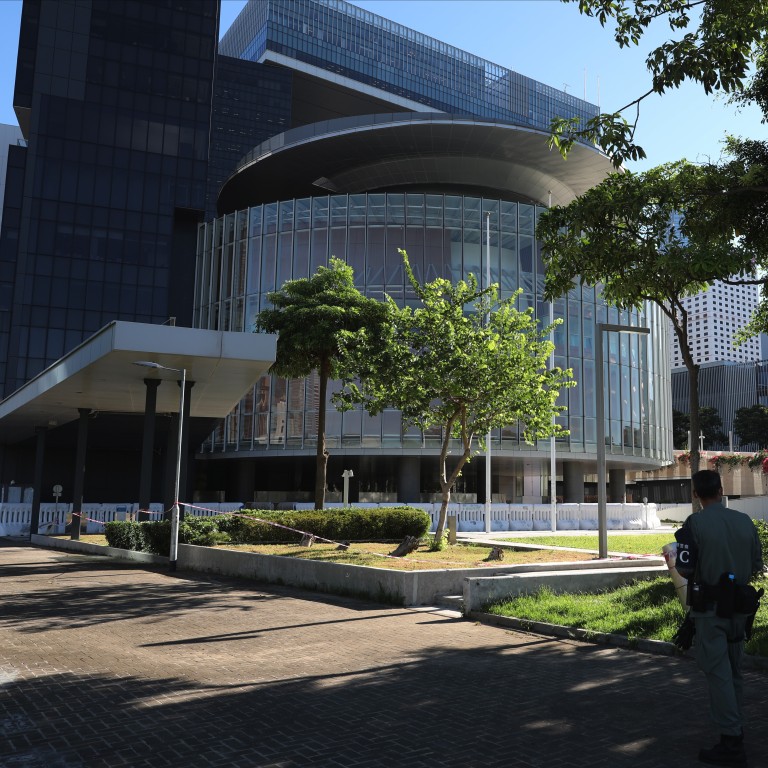
Exclusive | Pro-mainland Chinese financiers based in Hong Kong launch new Bauhinia Party aimed at reforming Legco, restraining ‘extremist forces’
- The pro-establishment party, which plans to register 250,000 members, hopes to support campaigns in ‘elections at all levels’
- One of three men listed as a founder in Companies Registry filings suggested turning Legco into a bicameral legislature in a recent speech
A group of pro-mainland Chinese executives working in Hong Kong at financial institutions such as Credit Suisse and Chi Capital have quietly founded a pro-establishment political party in a bid to contest elections and influence government policies, the Post has learned.
Among the goals of the Bauhinia Party is advocating Legislative Council reform and offering candidates whose goal will be to restrain “extremist forces” in the legislature.
Filings to Hong Kong’s Companies Registry show the Bauhinia Party was founded in May by three people: Li Shan, Wong Chau-chi and Chen Jianwen, with Li and Wong indicating they were born on the mainland but became Hong Kong residents.

04:46
Hong Kong’s Bauhinia Party leader seeks to set the record straight about its Beijing connections
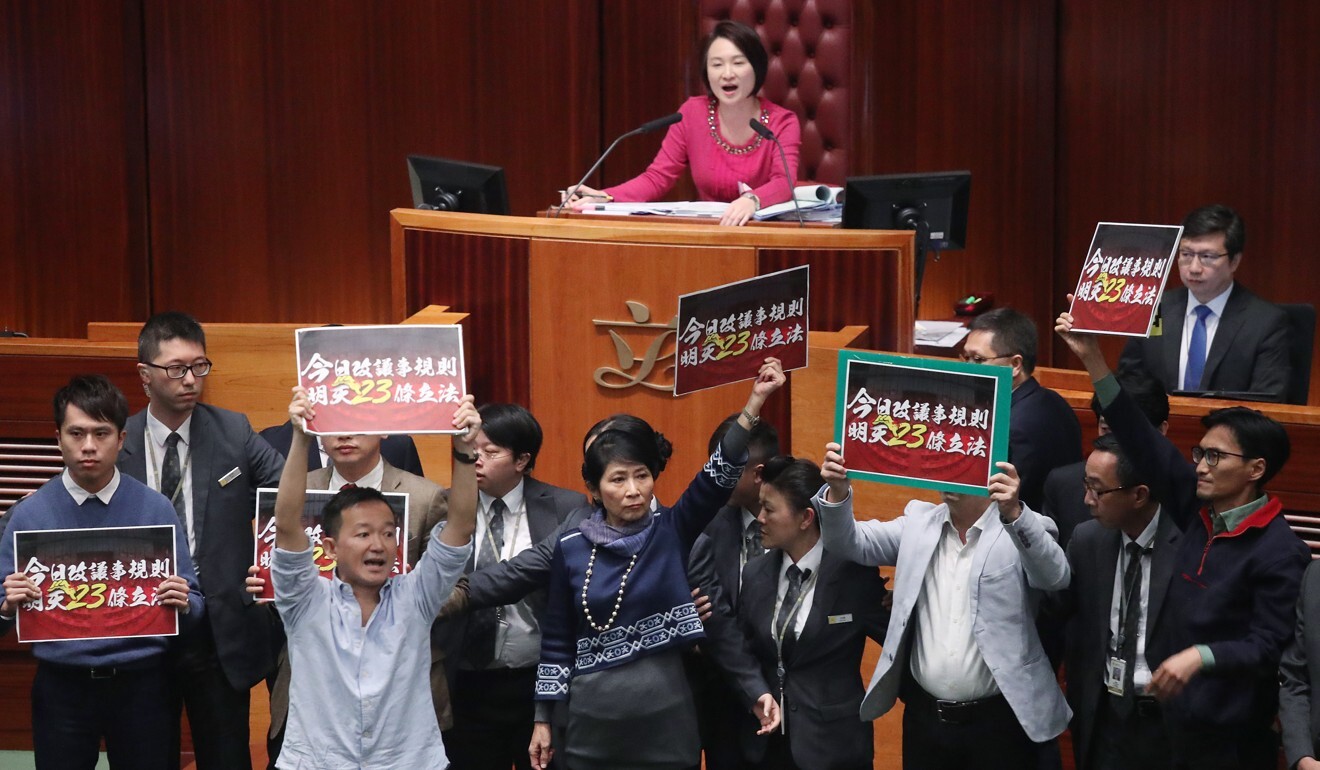
“Last year’s social unrest in Hong Kong caused many to question whether the principle of ‘one country, two systems’ would continue … We must improve governance and carry out reforms,” Li said, according to a transcript of his speech published on the WeChat account of Tsinghua’s graduate school of national governance.
Li, a Sichuan-born banker who has lived in Hong Kong for some 20 years, suggested turning Legco into a bicameral legislature. Members of the lower house would be chosen by Hongkongers via direct elections, while members of the upper house would be appointed by the chief executive through a newly established political consultative committee.
“My suggestions resonated with Hong Kong and Macau members of the CPPCC in previous meetings,” he said.
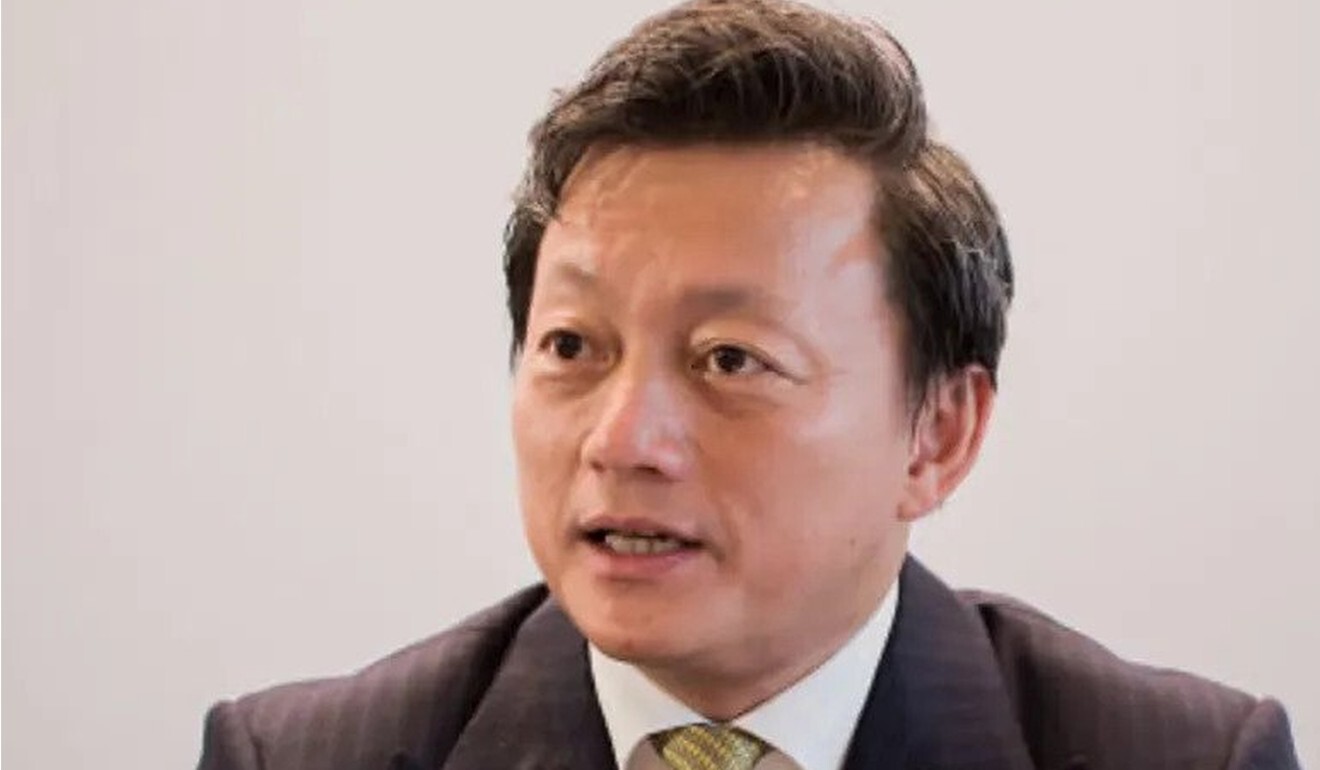
The 57-year-old also suggested that Hong Kong students be allowed to join the People’s Liberation Army.
Li and fellow party founder Wong are haigui – a Chinese term referring to overseas-trained mainlanders who return to the country.
A Tsinghua University graduate who further studied and worked in the United States, Li is also chief executive of the financial institution Silk Road Finance Corporation in Hong Kong and private equity fund Chinastone Capital Management in Shanghai.
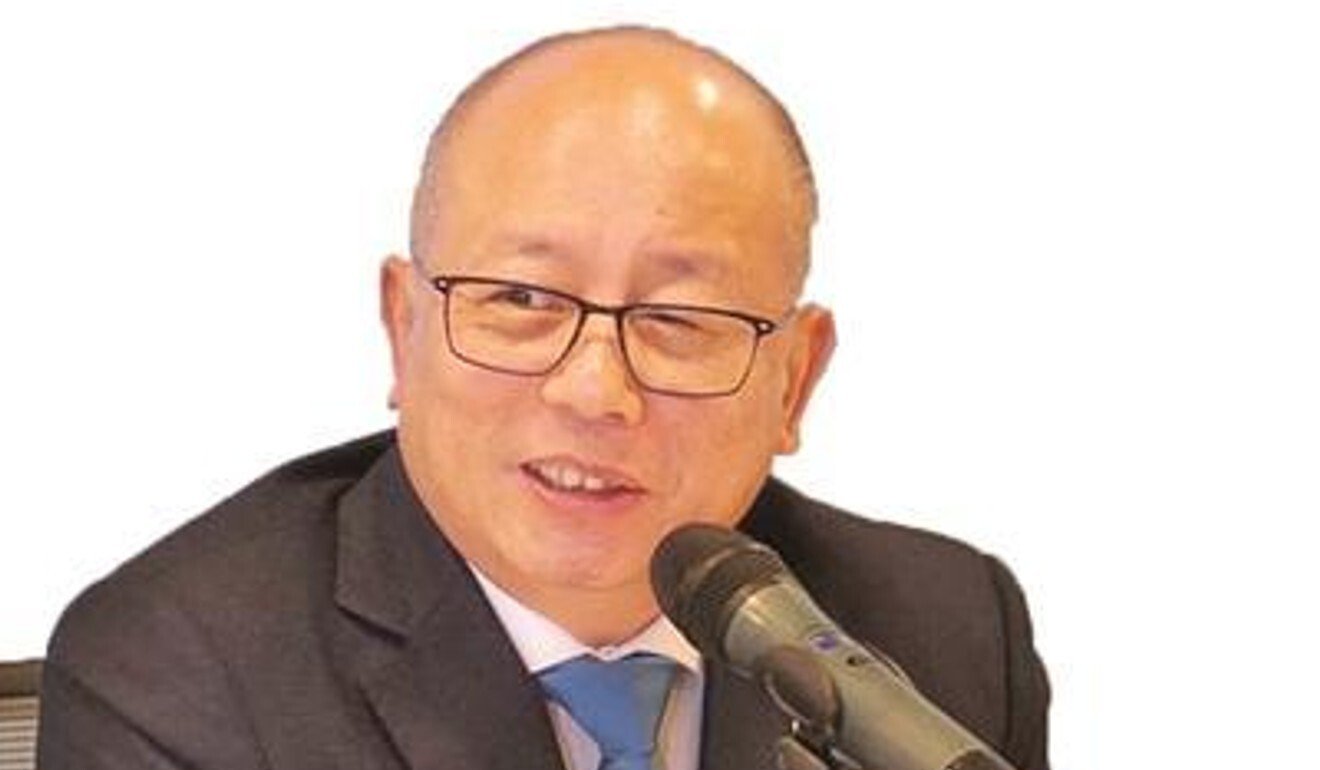
He also holds key roles at several think tanks, serving as vice-chairman of the Silk Road Planning Research Centre and the Tsinghua Institute for Governance Studies.
Wong, 55, an alumni of Harvard University who was born and raised on the mainland, is the chairman and chief executive of Hong Kong-listed multimedia firm CMMB Vision, a director of private equity fund Chi Capital, and was formerly with Goldman Sachs, Citibank and BNP Paribas.
Corporate filings show that Chen is chairman of Bonjour Holdings Limited, a cosmetic company listed in Hong Kong.
He is also currently a director of Haifu International Finance Holding and has diverse investments on the mainland including commercial real estate, national resources and manufacturing.
The three men’s new party, according to a document in the Companies Registry, seeks to “promote a democratic political system best suited to Hong Kong based on the rule of law and civil liberty with the realisation of universal suffrage as guaranteed by the Basic Law, so as to safeguard Hong Kong’s long-term prosperity and stability”.

The party will also encourage and provide support to members and associates of the party to take part in political affairs and “elections at all levels”. It planned to register 250,000 members, the corporate filing said.
The Post has reached out to all three founders for comment.
A source close to the Bauhinia Party said it had also invited Sing Wang, former chief executive of Tom Group, part of tycoon Li Ka-shing’s CK Hutchison Holdings, to join the new outfit.
But in a reply to the Post, Wang, who was previously with large private equity fund TPG, investment bank Goldman Sachs and HSBC’s private equity division, said he had turned down the invitation.
The ex-banker, who is promoting the concept of a public-private partnership to fund the island-building megaproject off Lantau, said he was focused on getting the idea off the ground.
“I do not personally want any distraction from my partnership proposal on Lantau Tomorrow,” he said, though he praised Li Shan’s efforts in advocating the proposal at the CPPCC earlier in May.
The city’s pro-establishment camp, meanwhile, had heard little about the new party.
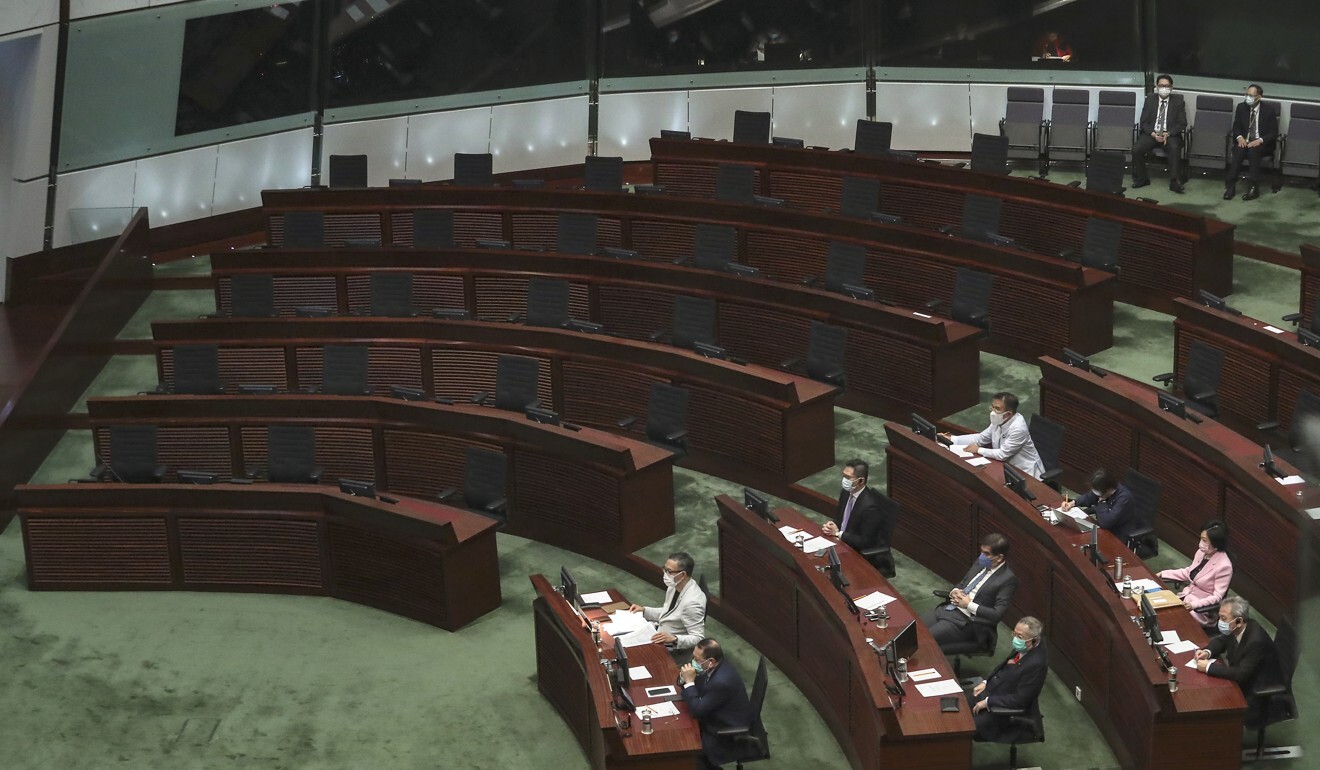
James Tien Pei-chun, former chairman of the pro-business Liberal Party, believed chances of the new party becoming an influential force within the bloc were slim.
While agreeing that sitting lawmakers were in the best position to advocate for Legco reforms, he noted there were already members representing interests of major Chinese-funded enterprises and pro-Beijing business associations in the legislature’s functional constituencies.
“I don’t think Beijing wants to tilt the balance of power by replacing the incumbents with a group of lesser-known, mainland-born people,” he said.
Speaking on condition of anonymity, a lawmaker from the city’s largest pro-government bloc said he believed it would be hard to win direct seats without existing connections and previous experience in Hong Kong’s districts.
“They might just hope to make some noise and gain support for their own agenda,” he said.
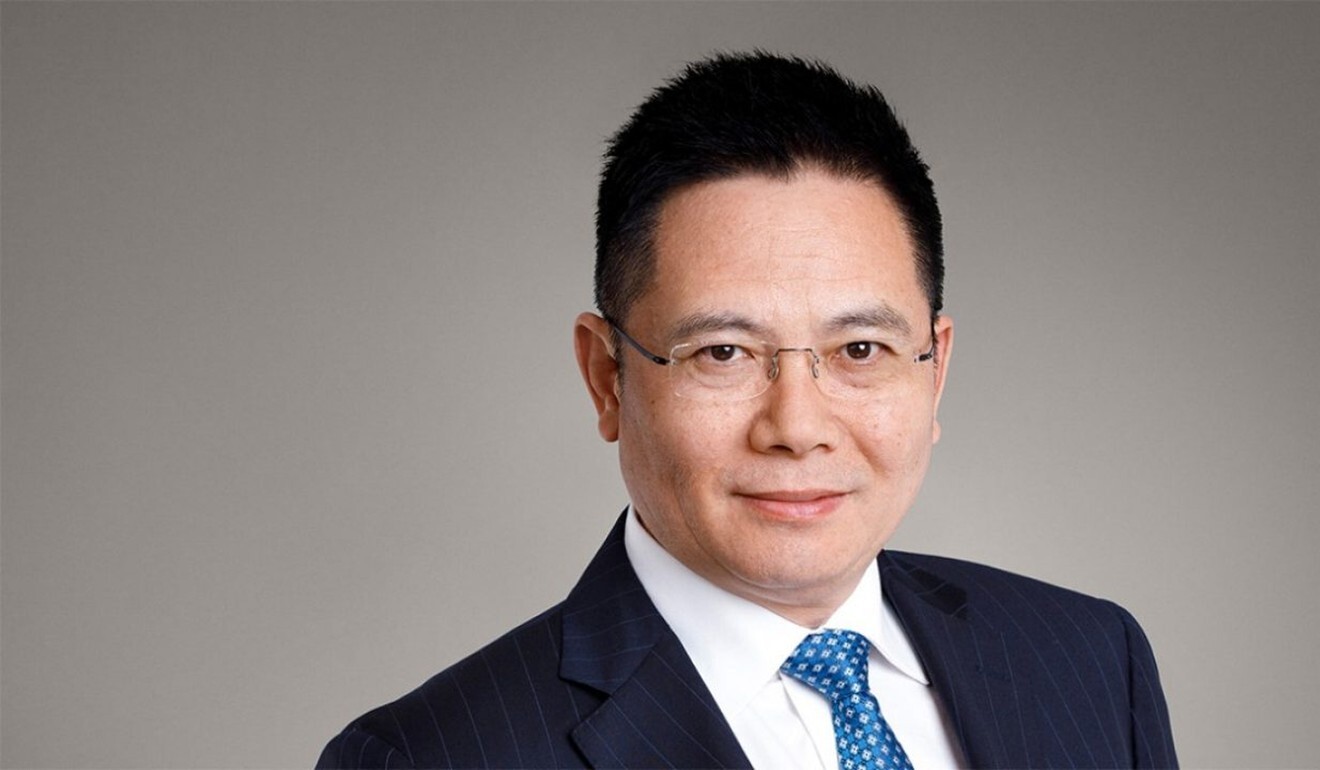
Pro-establishment lawmaker Regina Ip Lau Suk-yee, one of Lam’s advisers and chairwoman of the New People’s Party, said the new political entity must prove its worth with electoral success.
“Apparently these are pro-establishment elites ... [But] a political party must be able to win seats,” Ip said. “These are very early days and it’s not easy to win seats. The field is already very crowded.”
Ip also said she hoped the Bauhinia Party could encourage young talent and high-performing individuals from business and other fields to enter politics.
Lam Cheuk-ting, vice-chairman of the Democratic Party who was one of those resigning as a lawmaker last month, suggested the new party would offer little to city politics.
“It’s just the difference between one puppet or two puppets,” Lam said. “The question remaining is how favoured is this party by Beijing.”


